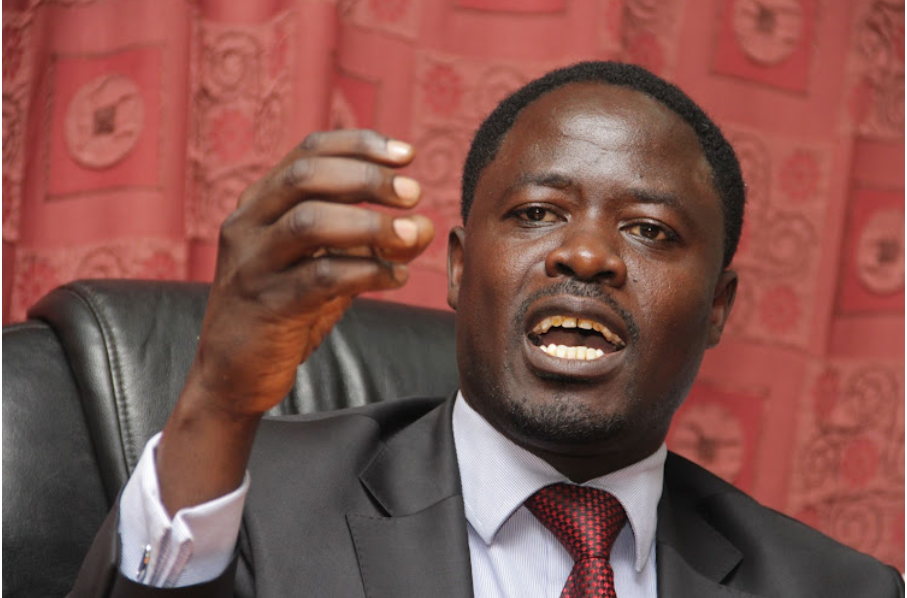Politics
Peter Kaluma: Homa-Bay MP Introduces Dangerous Proposal To Assault Anti-Corruption Laws

Peter Kaluma, the Homa-Bay Town Mp, has put forth a bill that would allow graft convicts to run for office and hold public positions in a stunning display of audacity.
Kaluma seeks to undermine the hard-fought progress made in the battle against corruption by proposing the removal of Section 64 of Chapter Six of the Constitution, which currently disqualifies corruption and economic crime convicts from occupying public office.
This outrageous proposition is a slap in the face of justice and a grave disservice to the people of Kenya.
Homa Bay MP Peter Kaluma Undermining the Fight Against Corruption
The proposed amendment by Kaluma disregards the principles of accountability and integrity and weakens the Anti-Corruption and Economic Crimes Act of 2003.
Section 64 was put in place to ensure that individuals convicted of corruption or economic crimes do not continue to occupy positions of power, where they can exploit their influence and perpetuate further corruption.
By seeking to delete this crucial provision, Kaluma is providing an opportunity for corrupt individuals to evade the consequences of their actions and potentially continue their illicit activities within the corridors of power.
The Fallacy of Rehabilitation
Kaluma argues that a convicted individual will have already served their punishment and that the ten-year ban on holding public office is unfair.
This line of reasoning ignores the purpose of the ban, which is to protect public institutions from being tainted by individuals who have abused their positions for personal gain.
The ban acts as a deterrent, discouraging potential corrupt officials and demonstrating the severity of corruption as a crime. Removing this ban would undermine the fundamental principles of justice and accountability.
Erosion of Deterrence
The Ethics and Anti-Corruption Commission (EACC) has raised concerns about the dangerous implications of Kaluma’s proposal. By allowing corruption convicts to be appointed back to the very offices they held before their convictions, the proposed amendment undermines the deterrent effect of the law.
The fear of being barred from public office for ten years has served as a crucial deterrent for public officials who might otherwise be tempted to engage in corrupt practices.
Removing this fear would create an environment conducive to corruption, where individuals would have little to lose by engaging in graft.
Homa Bay MP Peter Kaluma Proposal: A Setback to the Fight Against Corruption
Kenya has made significant strides in recent years to combat corruption and restore public trust in the government. However, weak anti-corruption laws have long been identified as a major obstacle to achieving lasting change.
Kaluma’s proposal, if successful, would roll back the progress made and hamper the efforts of anti-corruption crusaders. We cannot afford to dilute the legal framework that holds corrupt individuals accountable.
The proposed amendment risks sending the wrong message to the public, suggesting that corruption is tolerable and that the consequences for such crimes can be easily circumvented.
Conclusion
Peter Kaluma’s proposed bill to allow corruption convicts to run for office and hold public positions is a regressive and dangerous assault on anti-corruption laws in Kenya.
By seeking to delete Section 64 of the Constitution, Peter Kaluma is undermining the progress made in the fight against corruption and weakening the deterrence measures that have been put in place.
It is crucial that lawmakers reject this ill-conceived proposal and reaffirm their commitment to upholding integrity, accountability, and justice.
The people of Kenya deserve leaders who are committed to fighting corruption, not those who seek to protect the interests of the corrupt.
Kenya Insights allows guest blogging, if you want to be published on Kenya’s most authoritative and accurate blog, have an expose, news TIPS, story angles, human interest stories, drop us an email on [email protected] or via Telegram
-

 Grapevine2 weeks ago
Grapevine2 weeks agoRussian Man’s Secret Sex Recordings Ignite Fury as Questions Mount Over Consent and Easy Pick-Ups in Nairobi
-

 News1 week ago
News1 week agoTHE FIRM IN THE DOCK: How Kaplan and Stratton Became the Most Scrutinised Law Firm in Kenya
-

 Investigations2 weeks ago
Investigations2 weeks agoMulti-Million Dollar Fraud: Three Kenyans Face US Extradition in Massive Cybercrime Conspiracy
-

 Economy1 week ago
Economy1 week agoIran Demands Arrest, Prosecution Of Kenya’s Cup of Joe Director Director Over Sh2.6 Billion Tea Fraud
-

 Business1 week ago
Business1 week agoA Farm in Kenya’s Rift Valley Ignites a National Reckoning With Israeli Investment
-

 Africa2 weeks ago
Africa2 weeks agoFBI Investigates Congresswoman Ilhan Omar’s Husband’s Sh3.8 Billion Businesses in Kenya, Somalia and Dubai
-

 Grapevine5 days ago
Grapevine5 days agoA UN Director Based in Nairobi Was Deep in an Intimate Friendship With Epstein — He Even Sent Her a Sex Toy
-

 News2 weeks ago
News2 weeks agoTragedy As City Hall Hands Corrupt Ghanaian Firm Multimillion Garbage Collection Tender























